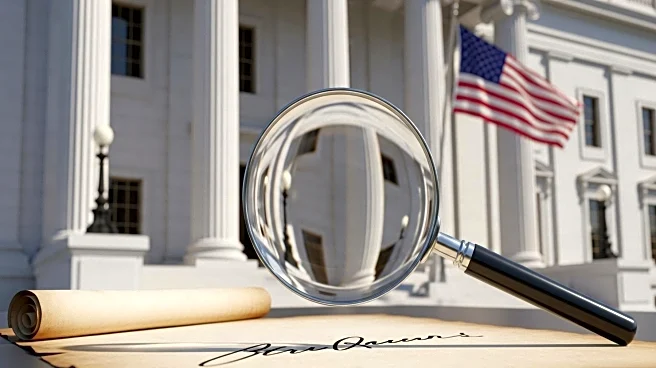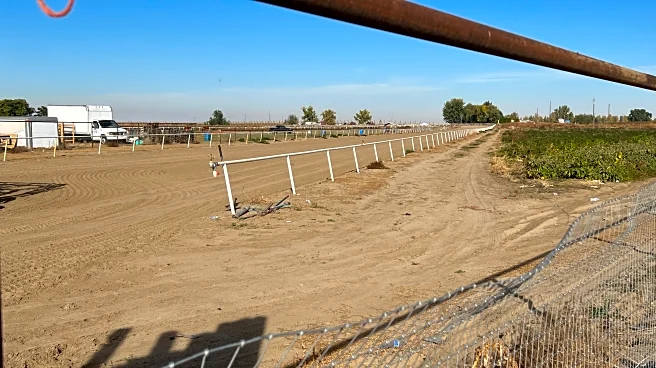What's Happening?
The White House has announced its support for a forensic analysis of a signature purportedly belonging to President Trump on a letter associated with Jeffrey Epstein. This development follows a bipartisan petition by four Republican members of the House of Representatives demanding the release of all documents related to Epstein. The petition reflects ongoing public suspicion, as a recent Reuters/Ipsos poll indicates that 65% of respondents believe the government is concealing information about Epstein's 2019 death, and 72% suspect the government is hiding details about his client list. President Trump has denied any connection to the letter, stating that the language used does not match his style.
Why It's Important?
The investigation into the alleged Trump signature on the Epstein letter is significant as it touches on broader concerns about transparency and accountability within the government. The public's suspicion regarding Epstein's case highlights a demand for clarity and truth, which could impact public trust in governmental institutions. The bipartisan nature of the petition suggests a rare cross-party agreement on the need for transparency, potentially influencing future legislative actions or investigations. The outcome of the forensic analysis could either alleviate or exacerbate public concerns, depending on the findings.
What's Next?
The White House's support for a forensic analysis indicates a willingness to address public concerns, but the process and its results could lead to further political and legal ramifications. If the analysis confirms the signature as President Trump's, it may prompt additional investigations or legal challenges. Conversely, if the signature is proven not to be his, it could shift focus to other aspects of the Epstein case. The bipartisan petition may also lead to increased pressure on the administration to release more documents, potentially affecting future legislative or judicial actions.










